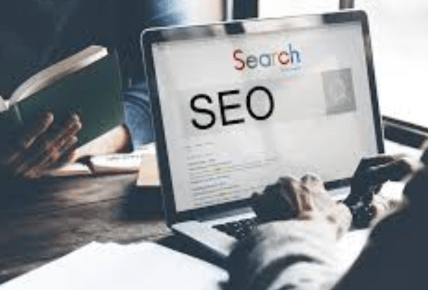Introduction
In the ever-evolving world of digital marketing, businesses face increasing pressure to remain visible, relevant, and engaging online. This is where a social media marketing agency plays a pivotal role. These agencies specialize in creating strategies, content, and campaigns that help brands connect with their audience on platforms like Facebook, Instagram, TikTok, LinkedIn, and X (formerly Twitter). By leveraging specialized knowledge and tools, they ensure businesses don’t just exist online but thrive with measurable results.
Understanding the Modern Digital Landscape
The digital marketing ecosystem is dynamic, shaped by new algorithms, emerging platforms, and shifting consumer behaviors. Social media now influences purchasing decisions, builds brand trust, and fuels customer loyalty. For example, younger audiences often discover brands through TikTok trends, while professionals engage with thought leadership content on LinkedIn.
To navigate this complexity, businesses must adopt tailored approaches rather than one-size-fits-all tactics. A well-equipped agency studies these digital patterns and recommends strategies aligned with target demographics, ensuring brands meet audiences where they are most active.
Key Services Offered by Social Media Marketing Agencies
A strong agency provides end-to-end solutions that encompass strategy, execution, and analytics. Typical services include:
- Content Creation – Agencies craft visuals, videos, copy, and interactive media that resonate with specific audiences. For instance, lifestyle brands often rely on Instagram Reels to capture attention, while B2B firms focus on case studies and infographics for LinkedIn.
- Campaign Management – From influencer collaborations to paid ad campaigns, agencies handle the details—budget allocation, A/B testing, and audience targeting—to maximize ROI.
- Analytics and Reporting – Data is the backbone of successful campaigns. Agencies track performance, evaluate metrics such as engagement and conversion rates, and refine future strategies accordingly.
By combining creativity with data-driven insights, agencies ensure that brands see both engagement and measurable growth.
The Importance of Strategy in Social Media Marketing
Execution without a clear strategy often leads to wasted resources. A successful approach typically follows these steps:
- Define Goals – Brands must set specific objectives: awareness, lead generation, or customer retention.
- Identify Target Audience – Using research tools, agencies pinpoint demographics, behaviors, and pain points.
- Choose Platforms – Selecting the right channel is essential. A restaurant may thrive on Instagram, while a consulting firm may benefit most from LinkedIn.
- Craft Content Calendar – Agencies map out consistent posts and campaigns aligned with seasonal trends and consumer behavior.
For example, an e-commerce company might plan campaigns around holiday sales, while a SaaS business aligns content with product updates. Without this roadmap, content risks being inconsistent or misaligned with business objectives.
How Agencies Drive Engagement and Conversions
Engagement and conversions don’t happen by chance—they’re the result of strategic planning and optimization. Agencies achieve this by:
- Leveraging Paid Advertising – Ads are targeted using demographics, interests, and behaviors, ensuring businesses reach the right audience.
- Incorporating Interactive Content – Polls, quizzes, and live streams drive active participation and build brand loyalty.
- Utilizing Influencers – Collaborations with niche influencers allow brands to gain credibility and access highly engaged communities.
For instance, a fitness brand might partner with micro-influencers who demonstrate products in real-world workouts, generating trust and sales simultaneously.
Case Examples of Effective Agency Work
- Small Business Growth – A local café partnered with a social media agency to create short-form TikTok videos showcasing its seasonal drinks. Within weeks, customer visits doubled due to viral engagement.
- Corporate Expansion – A B2B software company used LinkedIn ads managed by an agency to target decision-makers in new markets. The campaign generated high-quality leads that contributed to expanding into three new regions.
These examples illustrate how different industries benefit from agency expertise tailored to their unique goals.
Steps for Businesses to Maximize Agency Partnerships
To fully leverage the expertise of an agency, businesses should:
- Clearly Communicate Goals – Whether it’s brand awareness or conversions, clarity helps align strategies.
- Collaborate on Content – Share brand voice, values, and insider knowledge so the agency can create authentic content.
- Review Performance Regularly – Monthly reports and feedback sessions ensure strategies remain aligned with business needs.
This collaboration transforms agencies from service providers into strategic partners who drive long-term success.
Conclusion
In today’s competitive environment, working with a social media marketing company is no longer optional for businesses aiming to maintain visibility and achieve measurable growth. By offering expertise in strategy, content, and analytics, these agencies help brands cut through digital noise and engage meaningfully with their audience. Companies that embrace these partnerships not only amplify their online presence but also secure long-term relevance in an ever-changing digital marketplace.









